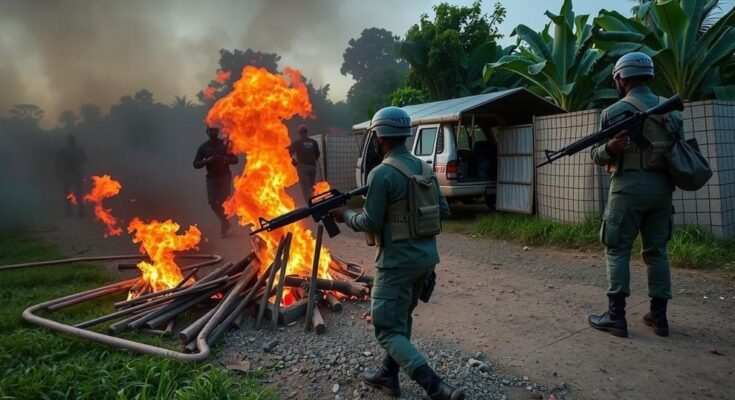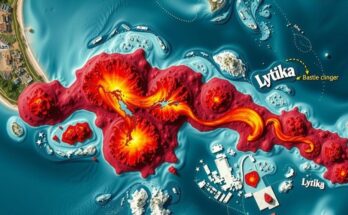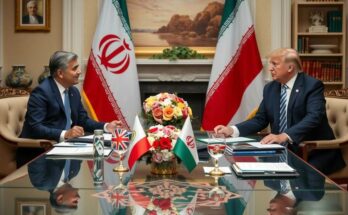Clashes have surged in eastern DRC, with Rwandan-backed M23 rebels intensifying offensives against the Congolese army despite a ceasefire. The humanitarian situation continues to deteriorate as the M23 encircles Goma, prompting increased displacement. Diplomatic dialogues are ongoing, with key talks scheduled between the leaders of Rwanda and the DRC in December, amid rising fears of further escalation.
In the eastern Democratic Republic of Congo (DRC), clashes have intensified over the past four days between Rwandan-backed rebels and the Congolese army, despite an ongoing ceasefire. The M23 militia, supported by Rwanda and claiming to advocate for ethnic Tutsi interests, has been active since 2021, capturing extensive territories that have led to significant displacement and a humanitarian crisis. As hostilities escalate, the M23 has nearly encircled the provincial capital, Goma.
The fragile truce brokered by Angola in early August temporarily stabilized the situation, yet both factions continued to exchange fire intermittently. In late October, the M23 launched localized offensives, further complicating efforts by the Congolese military and pro-Kinshasa militias to restrain their movements. Despite ongoing breaches of the ceasefire, diplomatic channels remain open, as noted by representatives from both the DRC and Rwanda.
The front lines have recently shifted towards the north of the M23’s base in Lubero territory, where both sides are making accusations regarding initial aggression. While both the M23 and the Congolese armed forces claim success in taking and defending positions, the overall progress remains unsettled. Fear of escalation is mounting as reinforcements are deployed to the previously stable northern front. Furthermore, the M23 is also facing opposition from pro-Kinshasa armed groups in North Kivu’s Masisi region.
As the violence continues, displaced individuals are seeking refuge in towns such as Kitsambiro, amplifying the humanitarian crisis. Upcoming scheduled talks between Rwandan President Paul Kagame and Congolese President Felix Tshisekedi on December 15 in Luanda may present an opportunity for resolution, albeit the immediate situation remains volatile, highlighting an urgent need for attention and intervention.
The ongoing conflict in the eastern DRC primarily involves the M23 militia, which has gained support from Rwanda since its emergence in 2021. This group claims to protect ethnic Tutsis but has become notorious for capturing significant portions of territory, leading to widespread displacement and humanitarian issues. The region has witnessed cycles of violence, and previous ceasefire agreements have struggled to maintain peace, exacerbated by regional power dynamics and ethnic tensions. The situation is compounded by the involvement of foreign nations and local militias, contributing to a complex and precarious environment.
The recent escalation of fighting in the eastern Democratic Republic of Congo underscores the challenges of enforcing ceasefires in regions plagued by entrenched conflicts and external influences. The M23’s actions, alongside the response from the Congolese army, highlight a fragile peace that remains susceptible to violations. The upcoming diplomatic discussions may provide an avenue for conflict resolution, yet the urgency of the humanitarian crisis calls for immediate and effective interventions to address the needs of the displaced populations and restore stability to the region.
Original Source: thedefensepost.com




